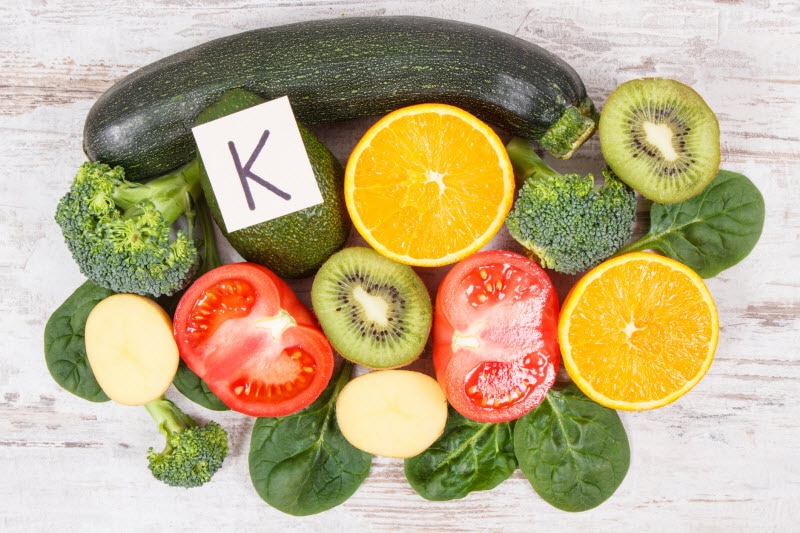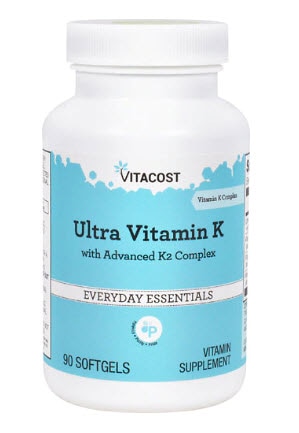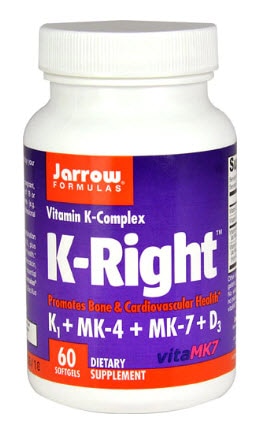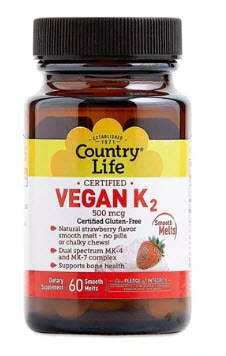The secret to a longer life might be tucked away in a leaf of spinach, or a piece of cauliflower.
Both vegetables are rich in vitamin K, and people who do not get adequate levels of this vitamin risk an earlier death, a new study suggests.
 Researchers at Tufts University in Massachusetts recorded the vitamin K levels of around 4,000 Americans ages 54 to 76 at the beginning of the study. They then followed the adults for the next 13 years.
Researchers at Tufts University in Massachusetts recorded the vitamin K levels of around 4,000 Americans ages 54 to 76 at the beginning of the study. They then followed the adults for the next 13 years.
Those with the lowest vitamin K levels had a 19% higher risk of dying earlier compared to participants with adequate vitamin K levels.
Why is vitamin K important?
“Vitamin K plays an important role in numerous body functions,” says Sharon Palmer, a registered dietitian nutritionist known as the “Plant-Powered Dietitian.”
These include blood coagulation and bone health. Adequate intake of vitamin K also may help reduce the risk of certain cancers and improve insulin sensitivity. †
“Those who have a risk for these conditions may benefit the most,” says Palmer, who was not affiliated with the study.
The Tufts University researchers note that vitamin K promotes healthy blood vessels. That fact might help ward off heart disease. †
Other studies have found that vitamin K can enhance brain performance. †
Good vitamin K sources
Vitamin K is found in “a lot of healthy foods we should be eating more of,” Palmer says. These include:
- Green leafy vegetables, such as spinach, turnip or mustard greens, chard and lettuce
- Cruciferous vegetables, such as brussels sprouts, broccoli, cauliflower and cabbage.
Smaller amounts of vitamin K can be found in grains, fish, liver, meat and eggs. Bacteria in the colon also make some vitamin K.
Vitamin K deficiency is rare in the U.S., Palmer says. Still, she says most people can benefit from getting more leafy greens into their diet.
“Of course, a daily salad is a great idea,” she says. “But you can also sneak those greens into smoothies, pasta dishes or casseroles.”
She also suggests roasting cruciferous veggies, such as brussels sprouts or broccoli, to make them taste even better.
Getting the right amount of vitamin K
Most people should have little trouble getting adequate levels of vitamin K into their diet, Palmer says.
However, some with digestive issues may struggle to absorb enough of the vitamin. If you have such a condition, consult with your physician about whether you are at risk of not getting enough vitamin K.
“It’s important for everyone to aim to get sufficient vitamin K in their diets for optimal health,” Palmer says.
Also, if you take the anticoagulant medication warfarin, it’s important to get just the right level of vitamin K – not too much, and not too little.
“If you have erratic intakes of vitamin K, then it can impact the efficacy of the drug by either making it less impactful or more impactful,” Palmer says.
People on warfarin who consume too little vitamin K are at risk of bleeding. Taking in too much of the vitamin raises their risk of blood clots.
So, work with your doctor to make sure you plan a consistent intake of vitamin K that will work well with your medication.
As long as you do not deviate from your agreed-upon diet, you should be able to enjoy foods rich in vitamin K without having to worry.
“If you like having a kale salad every day, go for it,” Palmer says. “But then try to be consistent with your behavior. Don’t eat a ton of green leafy ones day, and then never eat them for two weeks.”
†These statements have not been approved by the Food and Drug Administration. These products are not intended to diagnose, treat, cure or prevent disease.



